On the morning of November 15, Ho Chi Minh City University of Medicine and Pharmacy held the International Conference on Medical Testing and Quality Management Summary 2025: 15-Year Development Journey.
Speaking at the conference, Dr. Nguyen Trong Khoa - Deputy Director of the Department of Medical Examination and Treatment Management ( Ministry of Health ) assessed: "Over the past 15 years, the Center for Quality Control of Medical Testing - University of Medicine and Pharmacy, Ho Chi Minh City has grown remarkably, from zero to a core unit, playing the role of "an extended arm" of the Ministry of Health in implementing external inspection programs and providing professional support for testing facilities, especially in the Southeast - Central Highlands region".
From the early days when only about 100 units participated in external inspection, the center has now managed nearly 3,000 testing units nationwide, mastered nearly 50 external inspection programs and gradually expanded international cooperation, connecting regional and global inspection networks.
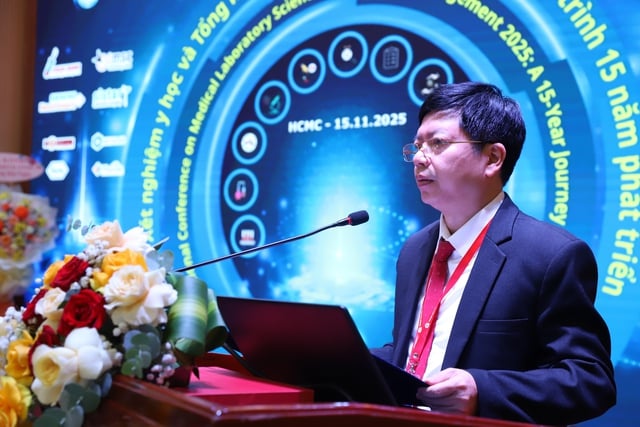
Dr. Nguyen Trong Khoa - Deputy Director of the Department of Medical Examination and Treatment Management (Ministry of Health ) spoke at the conference.
In 2025, the center will receive registrations and implement external inspection programs for 787 units, an increase of 12% over the same period in 2024; the total number of programs will reach 3,321, an increase of 22%. In addition, the center will organize many working groups to support quality management, training and technology transfer to improve professional capacity for testing units nationwide.
According to Dr. Nguyen Trong Khoa, testing is an important foundation in diagnosis and treatment, playing a key role in ensuring the quality of medical examination and treatment. A country's medical capacity is assessed based on four main pillars: paraclinical quality, surgical and procedural quality, drug and equipment supply system and professional quality management capacity.
Associate Professor Dr. Ngo Quoc Dat - Rector of Ho Chi Minh City University of Medicine and Pharmacy also said that in the context of precision medicine and personalized medicine, the World Health Organization (WHO) said that more than 70% of clinical decisions are based on test results. This shows that the reliability of the testing system has a direct impact on diagnosis, treatment regimen selection, response monitoring and chronic disease management. To have accurate test results, a strict quality management system and a professional community linking management agencies, testing facilities, calibration experts, training organizations and international partners are needed.
The Deputy Director of the Department of Medical Examination and Treatment Management said that the establishment of three Testing Quality Control Centers in Hanoi, Ho Chi Minh City and the Central region is an important turning point to help standardize testing activities nationwide. The three centers will continue to coordinate with the Ministry of Health to implement external control programs, provide technical support and improve testing quality.
In the coming time, in addition to ISO certifications, the Ministry of Health will develop a set of criteria to evaluate testing quality levels according to levels, combined with criterion 2429 to promote continuous improvement, creating motivation to improve quality for laboratories.
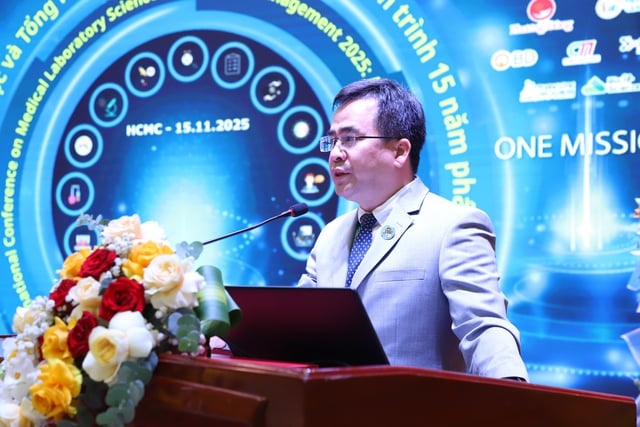
Associate Professor, Dr. Ngo Quoc Dat - Principal of Ho Chi Minh City University of Medicine and Pharmacy said that more than 70% of clinical decisions are based on test results.
Dr. Tran Thi Hue Van - Director of the Center for Quality Control of Medical Testing said that despite many achievements in the past 15 years, the testing industry still faces major challenges from genetic testing, proteomic testing, big data, the need to calibrate AI technology and the expansion of point-of-care testing (POCT).
To meet new requirements, the center will continue to innovate according to three main pillars: developing an in-depth external inspection program in line with technological advances, promoting digital transformation in quality management and assessment, and enhancing training and support for the implementation of Decision 2429 at testing facilities. The center's goal is to become one of the leading prestigious calibration units in Southeast Asia, actively contributing to the global testing quality management network.
Associate Professor, Dr. Ngo Quoc Dat hopes that the center will continue to expand its scale, aiming to develop into an affiliated institute, including many specialized units such as the Center for Testing Quality Management, the Center for External Control Program Production and the Center for Providing High-Quality Testing Services.
The Deputy Director of the Department of Medical Examination and Treatment Management (Ministry of Health) requested the Board of Directors of the University of Medicine and Pharmacy in Ho Chi Minh City to continue to pay attention, invest and create conditions for the Laboratory Quality Control Center to develop more strongly. Expand the external control program; develop the fields of pathology - biochemistry - microbiology - hematology; strengthen quality recognition to contribute to standardizing clinical activities.
Within the framework of the conference, the Center for Medical Laboratory Quality Control also received the ISO/IEC 17043:2023 Certificate issued by the National Quality Accreditation Office BOA for the field of hematology and microbiology.
Source: https://suckhoedoisong.vn/hon-70-quyet-dinh-dieu-tri-phu-thuoc-ket-qua-xet-nghiem-169251115113721919.htm



![[Photo] Exciting contest of skillful red fruit picking and creativity from Son La coffee beans](https://vphoto.vietnam.vn/thumb/1200x675/vietnam/resource/IMAGE/2025/11/15/1763201832979_ndo_bl_3-jpg.webp)

![[Photo] General Secretary To Lam receives Governor of Kanagawa Province (Japan) Kuroiwa Yuji](https://vphoto.vietnam.vn/thumb/1200x675/vietnam/resource/IMAGE/2025/11/15/1763204231089_a1-bnd-7718-5559-jpg.webp)
![[Photo] The Government Standing Committee reviews the planning project of the Red River landscape avenue axis](https://vphoto.vietnam.vn/thumb/1200x675/vietnam/resource/IMAGE/2025/11/15/1763197032149_dsc-0163-jpg.webp)
![[Photo] Action for the Community tells stories of enduring journeys – both intimate and great, yet quiet and determined](https://vphoto.vietnam.vn/thumb/1200x675/vietnam/resource/IMAGE/2025/11/15/1763179022035_ai-dai-dieu-5828-jpg.webp)



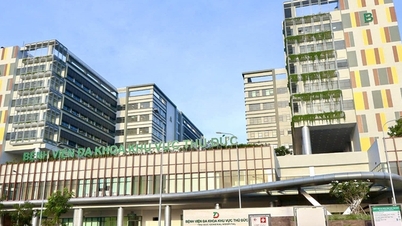



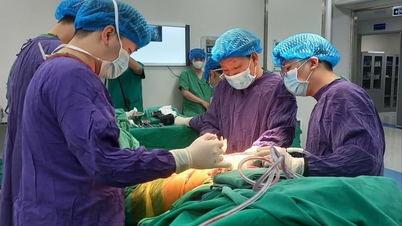

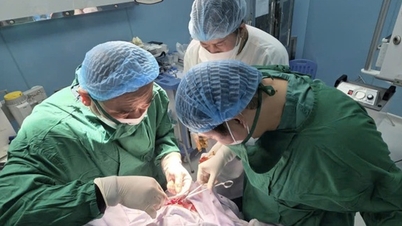


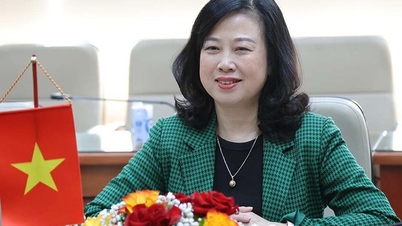

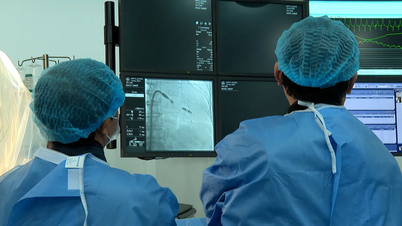




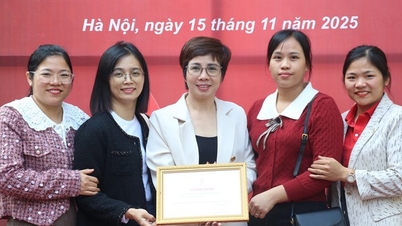




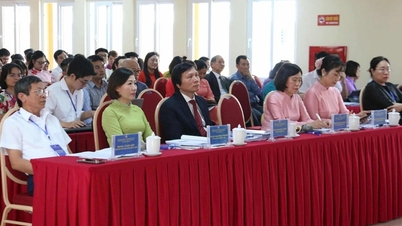






















































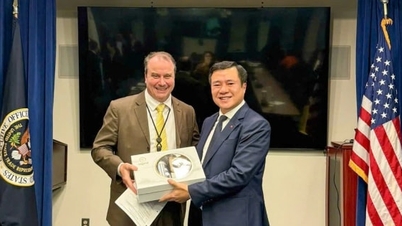

















Comment (0)